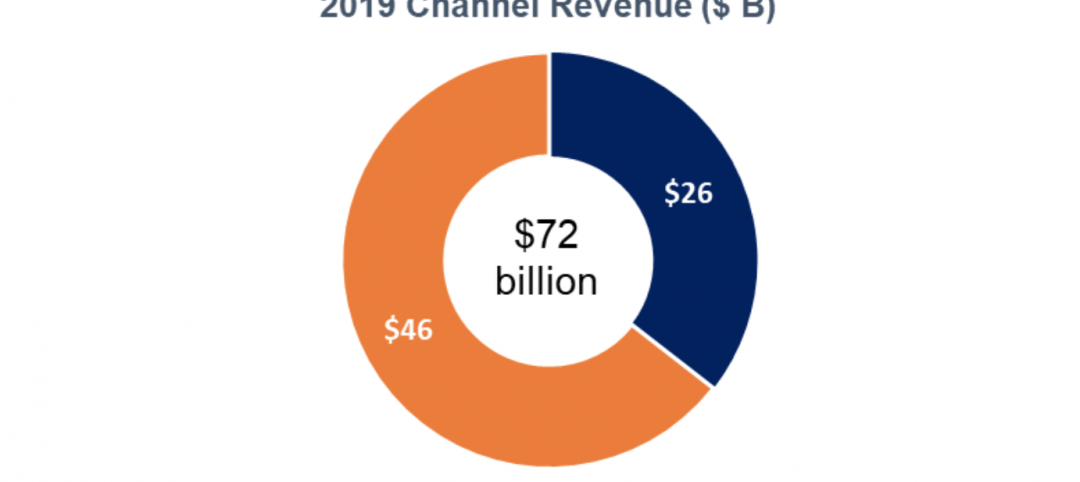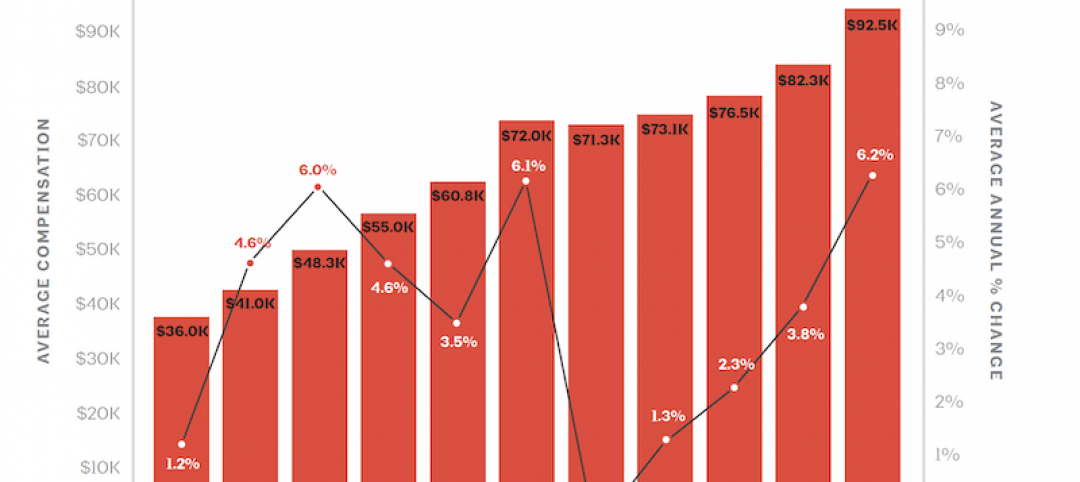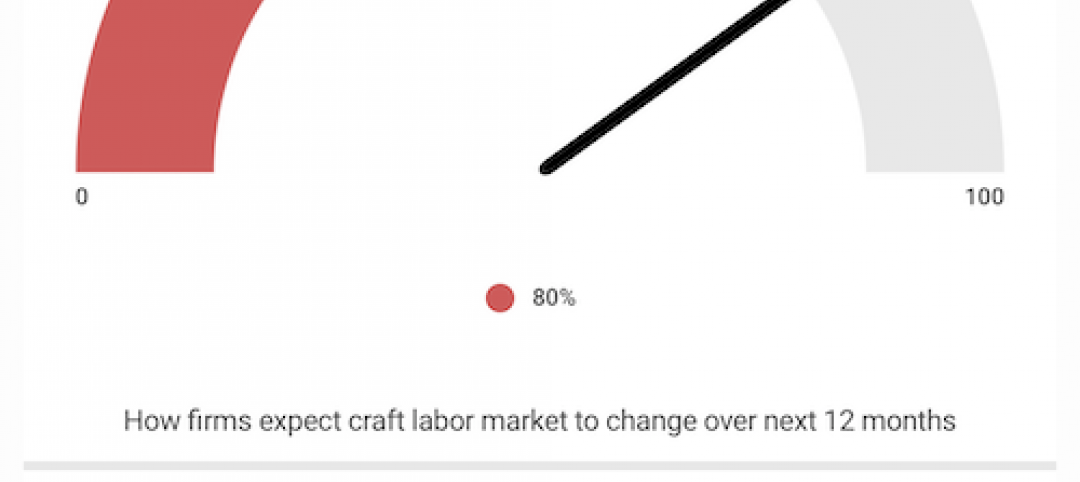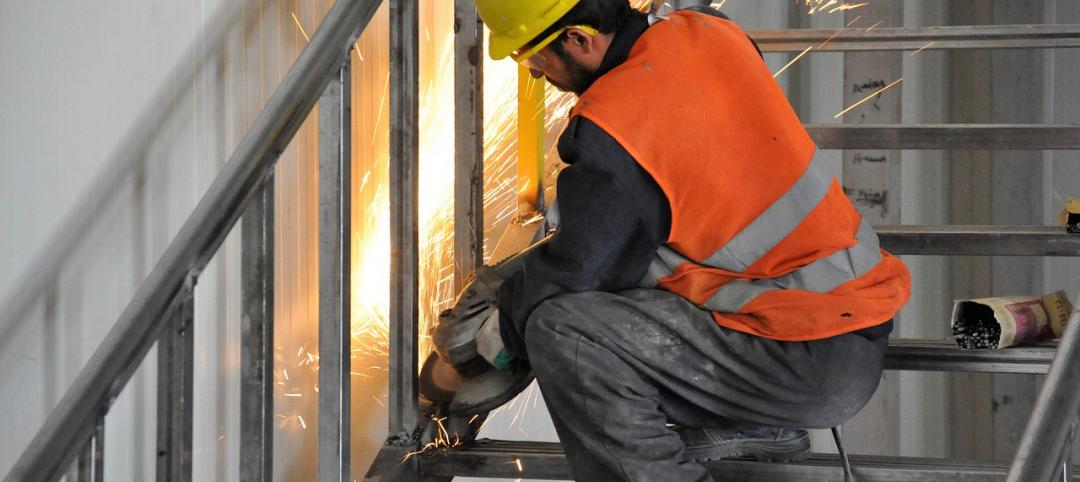International design and architecture firm Perkins Eastman recently announced the publication of its 2017 Survey on The State of Senior Living: “An Industry in Transition.” For this, the third in a series of industry surveys conducted by Perkins Eastman Research, led by Associate and Senior Design Researcher Emily Chmielewski EDAC, nearly 200 respondents from mostly not-for-profit life plan communities share their expertise and insights on five key issues that “keep them up at night”: Baby Boomer expectations, healthcare reform, staff recruitment and retention, for-profit competitive growth, and the needs of middle-income residents.
Some of the respondents’ feedback for “An Industry in Transition” was recorded at the 2016 LeadingAge Conference in Indianapolis, conducted at Perkins Eastman’s exhibition booth, in which a random sampling of senior living providers—mostly from the not-for-profit sector—volunteered to answer an on-the-spot survey question about the key issues facing the industry.
Further survey results and feedback revealed that, among the key focus areas being examined, staff recruitment and retention was the #1 concern among respondents. On this topic, many of those surveyed expressed unease toward how wages significantly outpaced job empowerment, benefits, and/or training, while as many as one in three respondents cited recent improvements in recruitment and retention with the help of job role empowerment interventions. Boomer expectations and healthcare reform were close seconds in terms of respondents’ chief concerns for their respective communities and the industry at large going forward.
The first two State of Senior Living surveys conducted by Perkins Eastman Research were published in 2009/10, in the immediate wake of the Great Recession, and in 2015, which was sub-titled “An Industry Poised for Change.” The reason for the relatively brief turnaround time between the second and third surveys has to do strategic alliances, in particular the expressed importance of partnering with healthcare providers. According to the Survey’s authors, “Our 2015 survey saw a remarkable gap between the current alignment with healthcare systems (29% had no relationship) and their belief that an alignment was in the future (74%). What a difference two years makes! Models involving strategic alliance, partnerships and primary referrals all saw significant growth” during this time.
As a rapidly aging Boomer population reevaluates its priorities going forward, and senior living models readjust to accommodate greater demand for everything from urban settings and intergenerational apartment environments to a la carte services for middle-income residents, the 2017 survey’s findings strongly indicate that strategic partnerships with healthcare systems is on the increase industry-wide. “Given some of the shifts in concerns and priorities, we believe [this latest] survey does speak for an industry already in transition and not just poised for change.”
“An Industry in Transition” is available for free download here.
Related Stories
Market Data | Feb 24, 2021
2021 won’t be a growth year for construction spending, says latest JLL forecast
Predicts second-half improvement toward normalization next year.
Healthcare Facilities | Feb 18, 2021
The Weekly show, Feb 18, 2021: What patients want from healthcare facilities, and Post-COVID retail trends
This week on The Weekly show, BD+C editors speak with AEC industry leaders from JLL and Landini Associates about what patients want from healthcare facilities, based on JLL's recent survey of 4,015 patients, and making online sales work for a retail sector recovery.
Market Data | Jan 19, 2021
2021 construction forecast: Nonresidential building spending will drop 5.7%, bounce back in 2022
Healthcare and public safety are the only nonresidential construction sectors that will see growth in spending in 2021, according to AIA's 2021 Consensus Construction Forecast.
AEC Tech | Feb 13, 2020
Exclusive research: Download the final report for BD+C's Giants 300 Technology and Innovation Study
This survey of 130 of the nation's largest architecture, engineering, and construction firms tracks the state of AEC technology adoption and innovation initiatives at the AEC Giants.
Office Buildings | Feb 11, 2020
Forget Class A: The opportunity is with Class B and C office properties
There’s money to be made in rehabbing Class B and Class C office buildings, according to a new ULI report.
Industry Research | Dec 13, 2019
Attention building design experts: BD+C editors need your input for our 2020 Color Trends Survey
The 2020 Color Trends research project will assess leading and emerging trends and drivers related to the use of color on commercial, institutional, and multifamily building projects.
Architects | Sep 11, 2019
Buoyed by construction activity, architect compensation continues to see healthy gains
The latest AIA report breaks down its survey data by 44 positions and 28 metros.
Industry Research | Aug 29, 2019
Construction firms expect labor shortages to worsen over the next year
A new AGC-Autodesk survey finds more companies turning to technology to support their jobsites.
Codes and Standards | Aug 29, 2019
Industry leaders ask for government help as trades shortage worsens
AGC asks for more funding for education and increased immigration to fill gaps.

















